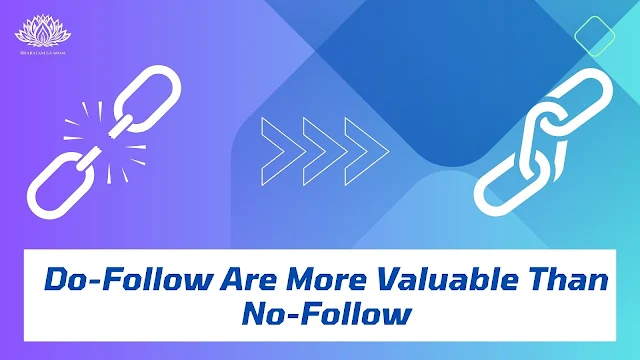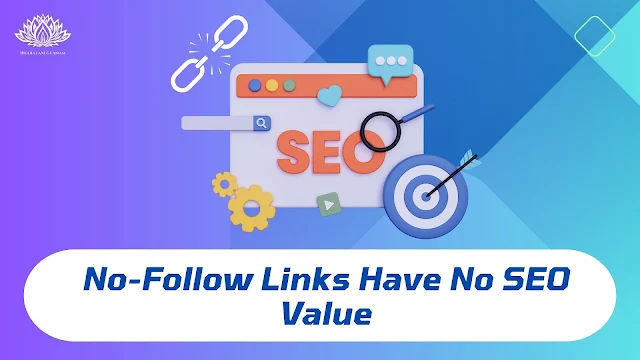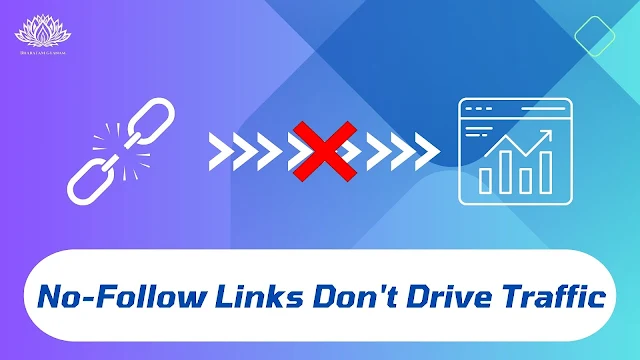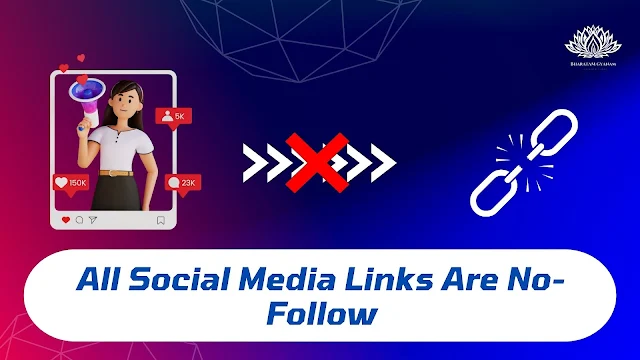In search engine optimization (SEO), do-follow and no-follow links often need clarification and clarification. Many website owners and marketers are still determining these links' real value and impact on their SEO efforts. In this article, we will debunk ten common myths surrounding do-follow and no-follow links and shed light on their significance in the digital landscape.
Understanding Do-Follow and No-Follow Links
Before diving into the myths, it's essential to understand the fundamental difference between do-follow and no-follow links.
Do-follow links are hyperlinks that search engines recognize and count as votes of confidence, influencing the linked page's search rankings.

On the other hand, no-follow links contain an HTML attribute that instructs search engines not to follow or give SEO value to the linked page.

Myth 1: Do-Follow Links Are More Valuable Than No-Follow Links
Backlinks are links from external websites that point to your site and play a crucial role in establishing your website's authority and relevance. Regarding backlinks, there are two primary types: do-follow and no-follow links. This article will explore why do-follow links are more valuable than no-follow links.
First, let's understand the difference between the two. Do-follow links are hyperlinks recognized by search engines and pass on the "link juice" from the linking website to the linked website. When a search engine crawls a website and discovers a do-follow link pointing to another site, it considers it a vote of confidence and assigns some of the linking site's authority and relevance to the linked site. On the other hand, no-follow links are hyperlinks that contain a particular HTML attribute (rel="nofollow") that instructs search engines not to follow or pass any authority to the linked site.

Now, why are do-follow links more valuable? Here are a few reasons:
1. Search engine rankings: Search engines like Google consider do-follow links as endorsements from other websites. When reputable and relevant websites link to your site with do-follow links, it signals to search engines that your content is valuable and trustworthy. As a result, your site is more likely to rank higher in search engine results.
2. Link authority and relevance: Do-follow links contribute to your website's overall authority and relevance. When authoritative websites with a robust online presence link to your site, it increases your own site's credibility and visibility. On the other hand, no-follow links provide a different boost to your site's authority and relevance.
3. Organic traffic: Do-follow links can generate organic traffic to your website. When users come across a do-follow link on a reputable website, they are likelier to click on it and visit your site to increase exposure, engagement, and conversions for your business or brand.
4. Building relationships and partnerships: Getting do-follow links often requires establishing relationships and partnerships with other website owners or influencers. By reaching out to relevant websites in your industry and offering valuable content or resources, you can secure do-follow links that benefit your SEO and help you build valuable connections within your niche.
While do-follow links are generally more valuable, it's important to note that a natural backlink profile should include a mix of both do-follow and no-follow links. This diversity indicates to search engines that your backlinks are organic and acquired through genuine means rather than manipulative tactics.
Myth 2: No-Follow Links Have No SEO Value
Before delving into the SEO value of no-follow links, let's clarify what they are. A no-follow link is an HTML attribute that can be added to a hyperlink to signal search engines not to pass authority or "link juice" to the linked webpage. Search engines initially introduced it to combat spam and discourage manipulative link-building practices.

1. No-Follow Links and Search Engine Crawlers:
Contrary to the misconception that no-follow links are entirely ignored by search engine crawlers, they are indeed followed and indexed. While they may not directly contribute to the target web page's rankings, search engine bots still crawl and process the content on the linked page. The linked page can still be discovered, indexed, and ranked for relevant queries.
2. Referral Traffic and Brand Exposure:
No-follow links can generate valuable referral traffic to your website. When a reputable website includes a no-follow link to your content, it exposes your brand to a broader audience who may click on it and visit it. This increased exposure can increase brand awareness, potential conversions, and indirect SEO benefits.
3. Diverse Link Profile and Trust Signals:
A natural and diverse link profile is crucial to a healthy SEO strategy. Acquiring both follow and no-follow links from various authoritative sources establishes credibility and sends positive trust signals to search engines. Even if no-follow links don't directly impact rankings, they contribute to the overall link profile, making it appear more organic and trustworthy.
4. Social Media and Content Amplification:
No-follow links are prevalent on social media platforms where the default link attribute is often set to no-follow. Sharing your content across social networks can increase its visibility, engagement, and potential to go viral. While social signals may not directly impact search rankings, they indirectly contribute to your brand's online presence, which can influence SEO factors like brand mentions and user engagement.
Myth 3: No-Follow Links Don't Drive Traffic
While it's true that no-follow links do not directly contribute to improving a website's search engine rankings, dismissing them as ineffective for driving traffic would be a mistake. Here are a few reasons why no-follow links can still play a valuable role in attracting visitors to your website:

1. Expanding Your Link Profile:
Diversifying your link profile is crucial for SEO success. While do-follow links may be the primary focus for enhancing search engine visibility, a natural link profile should include a mix of do-follow and no-follow links. By obtaining relevant and high-quality no-follow links from reputable sources, you can strengthen the overall profile of your website. This helps search engines understand the credibility and relevance of your site, potentially leading to improved organic rankings over time.
2. Enhancing Brand Visibility:
No-follow links can be instrumental in increasing your brand's exposure to a broader audience. When your website is mentioned or linked to from reputable sources, regardless of the link attribute, it allows users to discover and explore your brand. This increased visibility can lead to direct website visits from curious users intrigued by your offerings.
3. Driving Referral Traffic:
While no-follow links may not directly impact search engine rankings, they can still generate valuable referral traffic. When a relevant website includes a link to your content, interested readers can click on it and land on your website. This referral traffic can be highly targeted and engaged since users have already shown interest by clicking the link. By optimizing your website for conversions and providing compelling content, you can turn this traffic into valuable leads, customers, or subscribers.
4. Building Relationships and Authority:
Acquiring no-follow links can contribute to establishing relationships with influencers, industry experts, and reputable websites. When these influential figures or websites link to your content, it helps build your authority and introduces you to their audience. As your relationship strengthens, this can lead to collaborative opportunities, guest posting invitations, and even future do-follow links. Such connections and endorsements can significantly contribute to the growth of your website's traffic and overall online presence.
Myth 4: All Social Media Links Are No-Follow
Contrary to popular belief, not all social media links are no-follow. While it is true that many social media platforms utilize nofollow attributes for specific links, it does not apply universally to all links on these platforms. In fact, some social media links are do-follow and can positively impact your website's search engine rankings.

Major social media platforms like Facebook, Twitter, and LinkedIn have implemented nofollow attributes for most user-generated content, including comments, shares, and profile links. This is primarily done to combat spam and prevent the abuse of link-building strategies. However, it is essential to note that links shared within your own social media profiles or posts often follow links.
For instance, when you share a blog post from your website on your Twitter or Facebook page, the link you include in the post will typically be a do-follow link. When search engine crawlers index your social media post, they will follow this link and consider it a legitimate backlink to your website. Consequently, this can contribute to your website's authority and search engine visibility and improve your rankings.
Utilizing Social Media Links for SEO Benefits:
Understanding that some social media links are do follow opens up opportunities for leveraging these platforms to boost your SEO efforts. Here are a few strategies to consider:
1. Engage in content sharing: Regularly share your website's high-quality content on social media platforms. By providing valuable and engaging content, you increase the chances of your posts being shared by others, generating more do-follow backlinks to your website.
2. Optimize your social media profiles: Make sure your social media profiles include links to your website. As mentioned, these links are often followed, providing valuable traffic and link juice to your site.
3. Encourage user-generated content: Prompt your followers and users to create content that links to your website. While the links they generate may be nofollow, the increased visibility and engagement can indirectly boost your website's SEO.
Myth 5: No-Follow Links Don't Pass Link Juice
Contrary to popular belief, no-follow links do have an impact on SEO and can pass link juice. While it's true that search engines may not directly follow these links, they still consider them when evaluating a website's authority and relevance.
1. Referral Traffic:
No-follow links can still generate referral traffic, meaning users who click on these links can be directed to your website. Even if search engines don't attribute link juice to these links, the potential traffic they generate can still positively impact your website's visibility and potentially lead to conversions.
2. Brand Visibility and Trust:
No-follow links from reputable and authoritative websites can enhance your brand's visibility and credibility. When influential websites mention or link to your content, even with no-follow tags, it signals to search engines that your website is trustworthy and worth considering. This can indirectly boost your SEO efforts by improving your overall online presence.
3. Natural Link Profile:
Search engines evaluate the quality and diversity of a website's backlink profile. A healthy mix of follow and no-follow links appears more natural and organic. By obtaining a balanced link profile, you can demonstrate to search engines that your website is genuine and not solely focused on acquiring follow links for SEO purposes.
4. Future Link Potential:
No-follow links have the potential to become follow links in the future. Websites may initially add no-follow tags to links but later remove them if they find your content valuable and trustworthy. By building relationships with website owners, publishers, and influencers, you increase the chances of converting no-follow links into valuable follow links down the line.
Myth 6: No-Follow Links Can't Improve Search Rankings
Do-follow links are the traditional links that pass link equity and signal to search engines that the linked page is valuable and trustworthy. On the other hand, no-follow links include an attribute called "rel=nofollow" in the HTML code, indicating to search engines that they should not follow the link or attribute any ranking value to the linked page.
Contrary to popular belief, no-follow links can still benefit your website's SEO efforts. Here are a few reasons why they should not be overlooked:
1. Traffic and Exposure: While no-follow links may not directly impact search rankings, they can drive valuable referral traffic to your website. When you have a link on a popular website, even if it is no-follow, users who come across that link may still click on it and visit your site. This increased traffic can lead to higher engagement metrics, such as longer time spent on your website or more pages visited, which indirectly signal to search engines that your website offers valuable content.
2. Brand Visibility and Authority: A solid online presence is crucial for any business or website. Even if a link is marked as no-follow, it can contribute to your brand's visibility and authority. When your website is mentioned on reputable sites within your industry, it enhances your brand's reputation and increases awareness among your target audience. This exposure can lead to more natural backlinks from other websites, including do-follow links, directly impacting search rankings.
3. Link Profile Diversity: Search engines consider the overall link profile of a website when determining its authority and relevance. A diverse link profile that includes both do-follow and no-follow links appears more natural and organic to search engines. By acquiring a mix of different links, you demonstrate to search engines that your website is attracting attention from various sources. This diversity can positively influence your overall SEO efforts and improve your rankings.
4. Social Signals and Amplification: No-follow links often come from social media platforms or popular online communities. Although these links may not directly influence search rankings, they are vital to amplifying social signals and content. When your content is shared and mentioned on social platforms, it can generate more visibility and engagement and potentially lead to do-follow links from users who discover your content through social channels.
Myth 7: Do-Follow Links Always Boost SEO
A do-follow link is a hyperlink that allows search engines to follow it and pass on link authority from one website to another. These links positively impact a website's SEO because they indicate to search engines that the linked website is trustworthy and authoritative.
The Myth Dispelled:
Contrary to the popular belief that all do-follow links significantly boost SEO, the reality is more complex. While do-follow links carry some weight in terms of SEO, their impact is not guaranteed to be uniformly positive. Search engines employ sophisticated algorithms that assess various factors to determine the credibility and relevance of a link.
1. Quality over Quantity:
The quality of the do-follow links holds far more critical than their quantity. In the past, website owners often used manipulative practices, such as link spamming, to acquire large quantities of do-follow links. However, search engines have become increasingly adept at recognizing and penalizing such unethical tactics.
Search engines prioritize links that come from authoritative and trustworthy sources. A single do-follow link from a reputable website within your industry can hold significantly more value than multiple links from low-quality or irrelevant sources. The relevance and quality of the linking website determine the true impact of a do-follow link on SEO.
2. Link Diversity:
Another crucial aspect to consider is the diversity of your link profile. Relying solely on do-follow links can raise red flags to search engines, as it may appear unnatural or manipulative. A healthy link profile should consist of a mix of do-follow and no-follow links and a variety of anchor texts and link sources.
3. A Comprehensive SEO Strategy:
While do-follow links can contribute to a website's SEO, it's important to remember that they are just one piece of the giant SEO puzzle. Developing a comprehensive SEO strategy that includes various factors, such as high-quality content creation, user experience optimization, on-page optimization, and effective keyword targeting, is essential to achieve optimal results.
Myth 8: No-Follow Links Are Irrelevant for Branding
While it's true that no-follow links do not directly impact a website's search rankings, they can still play a crucial role in branding. Here's why:
1. Enhanced Online Visibility: No-follow links can still drive traffic to your website even though they don't contribute to SEO rankings. When a high-quality website or influencer includes a no-follow link to your site, it exposes your brand to a new audience. This increased visibility can lead to brand recognition and attract new customers.
2. Building Relationships and Trust: No-follow links can help establish connections and relationships with industry influencers, bloggers, or other websites. When these authoritative figures or websites link to your content, it signals to their audience that your brand is worth exploring. This association fosters trust and credibility, which are essential for successful branding.
3. Expanding Social Reach: Social media platforms predominantly use no-follow links. Sharing your content on social media and having it spread through no-follow links can significantly increase your brand's reach. When users come across your content through these links, they can engage with it, share it further, and amplify your brand's presence across various social channels.
4. Generating Referral Traffic: No-follow links can drive valuable referral traffic to your website. While these links may not boost your search rankings directly, they can still bring in interested visitors who might convert into customers or subscribers. Referral traffic can also positively affect your website's performance and engagement metrics.
5. Brand Mentions and Sentiment: No-follow links often accompany brand mentions in articles, forums, or social media discussions. These mentions can contribute to brand awareness and sentiment, helping shape your brand's image in the minds of consumers. Monitoring and engaging with these mentions can provide valuable insights into customer perception and allow you to cultivate a positive brand reputation.
Myth 9: No-Follow Links Are Easy to Obtain
1. The Rise of Nofollow Attributes:
In the early days of SEO, no-follow links were relatively uncommon. However, with the increasing emphasis on link quality and the need to combat spam, search engines introduced the no-follow attribute in 2005. This attribute enabled webmasters to mark certain links as no-follow, signalling that they should not be considered for ranking purposes. Consequently, no-follow links grew significantly, making them a standard practice for many websites, including social media marketing, blog comment sections, and forums.
2. Limited SEO Value:
Contrary to popular belief, no-follow links do not directly contribute to a website's SEO ranking. The primary purpose of these links is to deter spam, control user-generated content, and ensure a more accurate representation of a website's organic backlink profile. While no-follow links may still provide indirect benefits, such as referral traffic and brand exposure, their impact on search engine rankings is minimal.
3. Obtaining No-Follow Links:
Due to their limited SEO value, webmasters and SEO professionals typically focus on acquiring do-follow links. Building a solid portfolio of quality backlinks requires time, effort, and strategic outreach. On the other hand, no-follow links can be obtained more easily through various channels, such as social media profiles, blog comments, and forum participation. However, it is essential to note that these no-follow links are unlikely to significantly impact a website's SEO ranking.
Myth 10: No-Follow Links Are Always Harmful
Debunking the Myth:
Contrary to popular belief, no-follow links can still provide value to your website and SEO efforts. Here are some reasons why they are not always harmful:
1. Referral Traffic:
Although search engines may not consider no-follow links for ranking purposes, they can still drive valuable referral traffic to your website. When users click on a no-follow link on a reputable website, they can be directed to your site, potentially increasing your visibility and attracting new visitors.
2. Brand Exposure:
No-follow links can contribute to building your brand's online presence. When your website or content is linked from authoritative sources, even with a no-follow attribute, it increases brand exposure and awareness. This exposure can enhance credibility and reputation, indirectly benefiting your SEO efforts.
3. Natural Link Profile:
Search engines expect a website to have a natural link profile consisting of do-follow and no-follow links. A link profile with only do-follow links may appear suspicious or manipulative. By including a mix of both links, you create a more balanced and organic link profile, which can positively impact your SEO.
4. Social Media Signals:
Links shared on social media platforms often need to be followed. While these links may not directly influence search engine rankings, they can generate social signals that indicate the popularity and relevance of your content. These signals can indirectly contribute to improved visibility and organic reach, driving more traffic to your website.
5. Link Building Opportunities:
No-follow links can still be valuable for link building. When other websites link to your content, even with a no-follow attribute, it can attract the attention of influencers, bloggers, or journalists interested in citing your work. This can lead to further mentions, collaborations, or even the acquisition of high-quality do-follow backlinks.
Conclusion
Understanding the reality behind common myths surrounding do-follow and no-follow links is crucial for developing an effective SEO strategy. Both types of links hold value, albeit in different ways. Do-follow links impact search rankings, while no-follow links contribute to a well-rounded link profile, brand visibility, and referral traffic. Embracing the strengths of each link type will lead to a more comprehensive and successful SEO approach.
FAQs

Q1: Should I only focus on obtaining do-follow links for my website's SEO?
No, it's essential to diversify your link profile with a combination of do-follow and no-follow links. Both types have their own benefits and contribute to a well-rounded SEO strategy.
Q2: Can no-follow links improve my website's authority and credibility?
Yes, high-quality no-follow links from reputable sources can enhance your website's authority and credibility, indirectly impacting your SEO efforts.
Q3: Do social media links have any SEO value?
While most social media platforms utilize no-follow links, they can still provide value by driving traffic, enhancing brand exposure, and attracting potential backlinks.
Q4: Can no-follow links help in building a strong brand presence online?
Absolutely! No-follow links can contribute to brand visibility, credibility, and reputation, which is crucial for establishing a solid online brand presence.
Q5: Are all no-follow links harmful to my website's SEO?
Not all no-follow links are harmful. By focusing on obtaining high-quality, contextually relevant no-follow links, you can harness their benefits without risking negative SEO consequences.






0 Comments